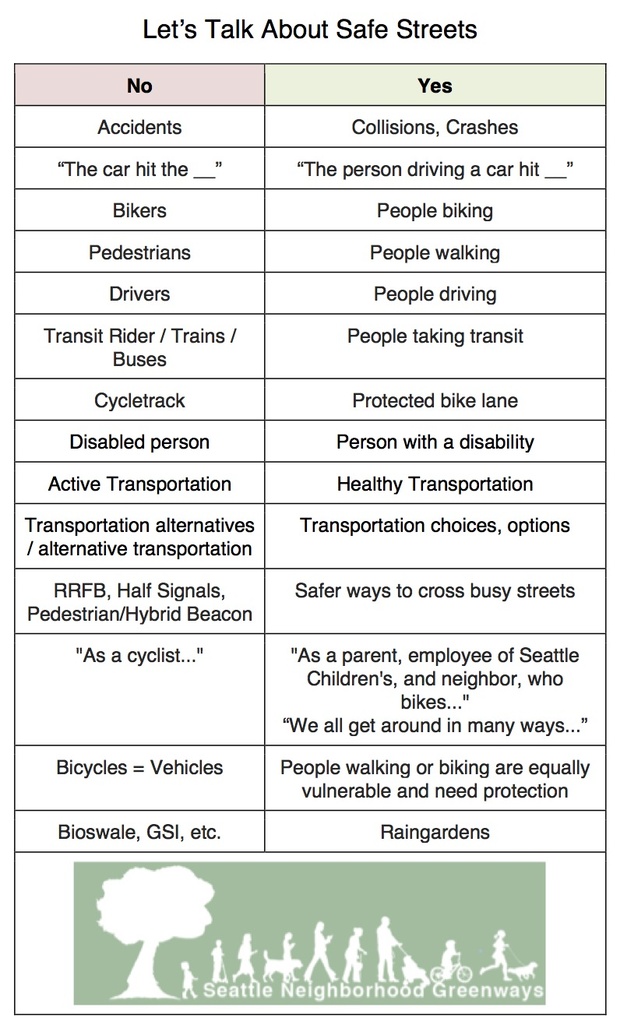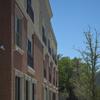Chiggers are the larvae, or immature stage, of a mite. These larval mites climb onto people when they walk through infested areas. The chiggers climb up the person's body seeking out a suitable feeding spot. They prefer to feed in areas where skin is thinnest or where clothing fits tightly. This often leads them to ankles, waist area, behind the knees, armpits and the groin area.
Chiggers do not- let me say that again....DO NOT- burrow into the skin as many people believe. "Smothering" them by painting the bite area with nail polish will not do anything to relieve discomfort. Instead of burrowing, chiggers inject a digestive enzyme into the skin which breaks down skin cells. The chiggers eat the broken down skin cells. Itching and redness from chiggers is caused by the body's reaction to the enzymes chiggers inject. Itching typically begins 3-6 hours after being bitten, peaks at 24 hours and may last up to 2 weeks.
Try to avoid chigger infested areas. If that is not possible, then here are some suggestions:
- wear protective clothing: tightly woven items that fit loosely that include long sleeves and pants with shoes and boots
- tuck pant legs into boots
- avoid sitting on the ground
- remove and launder clothing ASAP after being in infested areas
- shower/ bathe after being in infested areas; scrub vigorously with a washcloth
- before entering chigger infested areas, use an insect repellent with DEET or picaridin
- keeping the lawn mowed
- maintain vegetation; do not allow vegetation to grow high and keep brush cleared
- fill in any low lying areas that remain damp or moist
- try treating with residual pesticide sprays (pyrethroids)- read and follow all label instructions!

What if you could help make a city’s streets safer simply by the way you talk about them?
That may sound fanciful, but some cycling advocates in Seattle—scratch that, some people who ride bikes in Seattle—say that’s exactly what’s been happening there over the past few years.
A recent post by PeopleForBikes blogger Michael Andersen notes that starting in 2011, a new group called Seattle Neighborhood Greenways has made a conscious effort to change the way they talked about biking, walking, and pretty much everything else to do with the way their city’s streets are used by human beings.
In so doing, they hoped to radically alter what had become an acrimonious and unproductive civic debate, one where the phrase “war on cars” had come to characterize the way many Seattleites felt about policy changes that altered streets in an effort to make them safer and more accessible for a variety of users.
“Though the group made no secret of their biking advocacy, they didn't brand themselves as biking advocates,” writes Andersen. “They branded themselves as neighborhood advocates.”
SNG also developed a list of new ways to talk about their concerns and promoted it in handy chart form. Instead of “cyclists,” they suggest, use “people on bikes.” Instead of “drivers,” “people driving.” Instead of technical traffic-engineering terms such as “pedestrian/hybrid beacon,” say “safer ways to cross busy streets.” Replace “pedestrians” with “people walking.”

The change, according to Tom Fucoloro of Seattle Bike Blog, has been working.
“A basic element of a street is that everyone on it is a person,” says Fucoloro. “A person-centered word forces you to ask, maybe I’m thinking about this the wrong way.”
Fucoloro says that talking about streets in a way that emphasizes the common humanity of all users, rather than dividing them into tribes with warring interests, has made a real difference in the way Seattle’s planners discuss possible changes to streets with the community. As a result, he says, the discussion has become much more civil. And Seattle has been installing protected bike lanes (don’t say cycletracks!) at a steadily increasing pace.
“One of the biggest changes is when you can get public officials speaking this way,” says Fucoloro. “Now the city talks about safety. When you feel like what you are gaining is the ability to walk freely and safely around your neighborhood, rather than bike lanes for somebody else, that sounds a lot better.”
Other usages that Seattle Neighborhood Greenways suggest include replacing the term “accident” with the more neutral “collision” or “crash,” as well as rephrasing “the car hit the __” as “the person driving the car hit the ___.”
Carefully chosen language is clearly not enough by itself when it comes to changing attitudes. The real effect words have on people’s perception of events, however, has been demonstrated in countless studies, most famously in a 1975 experiment on language and memory known as Loftus and Palmer, for the scientists who conducted it.
Student test subjects were shown film clips from drivers’ education videos that showed crashes, then asked how fast the cars had been traveling at the time of impact. The questions were phrased with different verbs, i.e., “About how fast were the cars going when they smashed into each other?” with “smashed” replaced by “bumped,” “hit,” “contacted,” and other verbs. The results showed that the way the question was worded changed the students’ estimate of speed, with more violent verbs resulting in higher estimates. Students who were asked the question with the word “smashed” were also more likely to report having seen broken glass in the film, although there was none actually visible.
Language matters not only in the way planners talk to communities, but also in the way in the way news outlets report collisions. A recent headline from CBS Baltimore, “Deadly Crashes Between Cars and Md. Cyclists Happening at an Alarming Rate” is one of hundreds of examples. While the headline uses “crashes” instead of “accidents,” the wording doesn’t acknowledge that people are driving the cars, while it puts the people riding bicycles into a category that is easy to see as “other.” The verb “happening” makes the increase sound more like an unavoidable natural phenomenon rather than the result of inadequate infrastructure or human error.
Fucoloro says he understands why people default to “accidents” and similar usages. “It’s to avoid thinking about the fact that driving is the most dangerous thing we do on a regular basis,” he says. “But we need that sense of personal responsibility to make streets work.”
Changing the way we talk about our streets, he says, shouldn’t be about “word policing.” It should be part of a broader acknowledgment that these are social spaces where humans, with all their physical and emotional vulnerability, interact with one another.
“For too long, we’ve allowed streets to be the domain of traffic engineering,” says Fucoloro. “I cringe every time I hear the word ‘pedestrian’ — that’s our natural way of being! It’s not like you get out of the car and suddenly join ‘Team Pedestrian.’ Once we start thinking about streets without this framing, we can make progress.”
For immediate release
5/19/14
The VORTEX is now hiring a Bar Manager to manage The Butterfly Bar, a vital part of the arts organization, open 7 nights a week and serving the community, theatre-patrons, and bar patrons. The Butterfly Bar Manager works exclusively for The VORTEX, a non-profit theatre company that manages a home for the arts in East Austin.
Job Responsibilities
• Passionate interest in performing arts and in working for a non-profit theatre
• Working evenings, especially and consistently on Friday and Saturday evenings and for Special Events.
• Supporting closing including financial reconciliation and monitoring removal of guests’ drinks on most nights
• Ordering, purchasing, and shopping for all groceries, beer, wine, liquor, supplies, equipment, and furnishings
• Upholding TABC regulations and laws
• Scheduling and training of The Butterfly Bar staff
• Discipline, problem-solving, hiring, firing, and evaluation of bar staff
• Daily -- insuring that all side-work is completed at the beginning and end of shifts
• Daily -- insuring that the bar, restrooms, and Yard are clean and ready for the public at the beginning, during, and after shifts.
• Daily updates to the Butterfly Bar Facebook and Twitter accounts
• Weekly management and updating of The Butterfly Bar website
• Weekly staff meeting with The VORTEX staff (Monday 2 pm)
• Monthly inventory and cost control
• Maintenance and long-term planning for The Butterfly Bar facilities
• Watering the butterfly vines and landscaping including the grass as needed
Anticipated hours 40-60 hrs per week.
Bar Management Experience Preferred. Salary and benefits negotiable.
Available to start training immediately and full-time in July.
Please submit resume and letter of intent to
Bonnie Cullum vortex@vortexrep.org
The VORTEX, 2307 Manor Rd., Austin, TX 78722
 Seville on 4th Street, a new apartment community in the heart of East Austin, began welcoming its first tenants May 1 and already is 82 percent leased.
“We believe we’ve hit the sweet spot in the market,” said Kurt Goll, principal of JCI Residential, the Austin-based development company. “We’ve seen rents in downtown Austin double in the last three years and we’re much more affordable with the same proximity to live music venues and restaurants.”
JCI Residential purchased the empty…
Seville on 4th Street, a new apartment community in the heart of East Austin, began welcoming its first tenants May 1 and already is 82 percent leased.
“We believe we’ve hit the sweet spot in the market,” said Kurt Goll, principal of JCI Residential, the Austin-based development company. “We’ve seen rents in downtown Austin double in the last three years and we’re much more affordable with the same proximity to live music venues and restaurants.”
JCI Residential purchased the empty…




